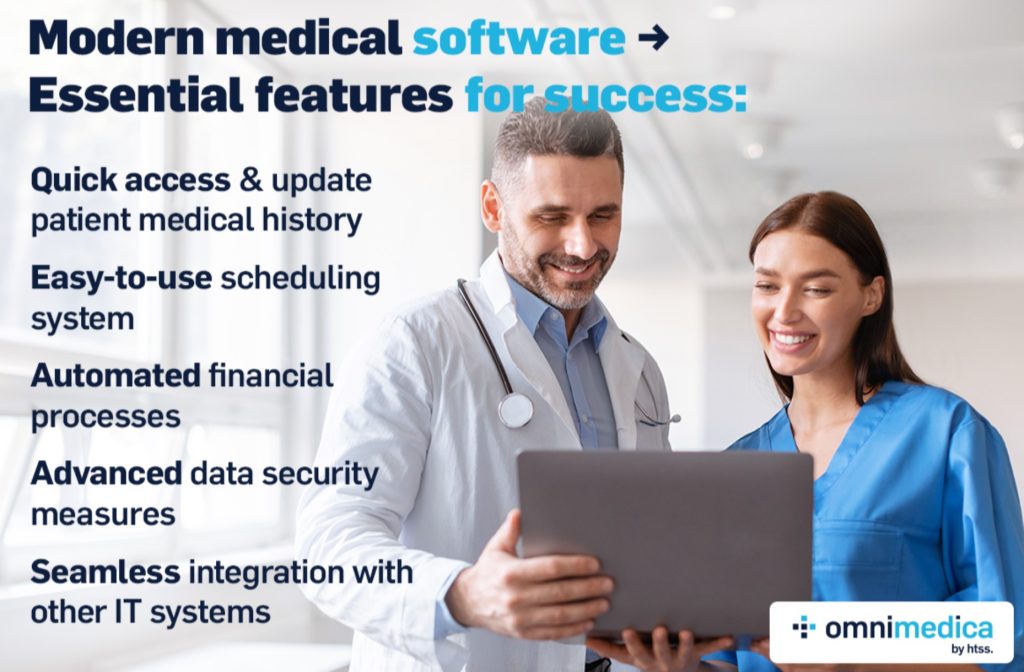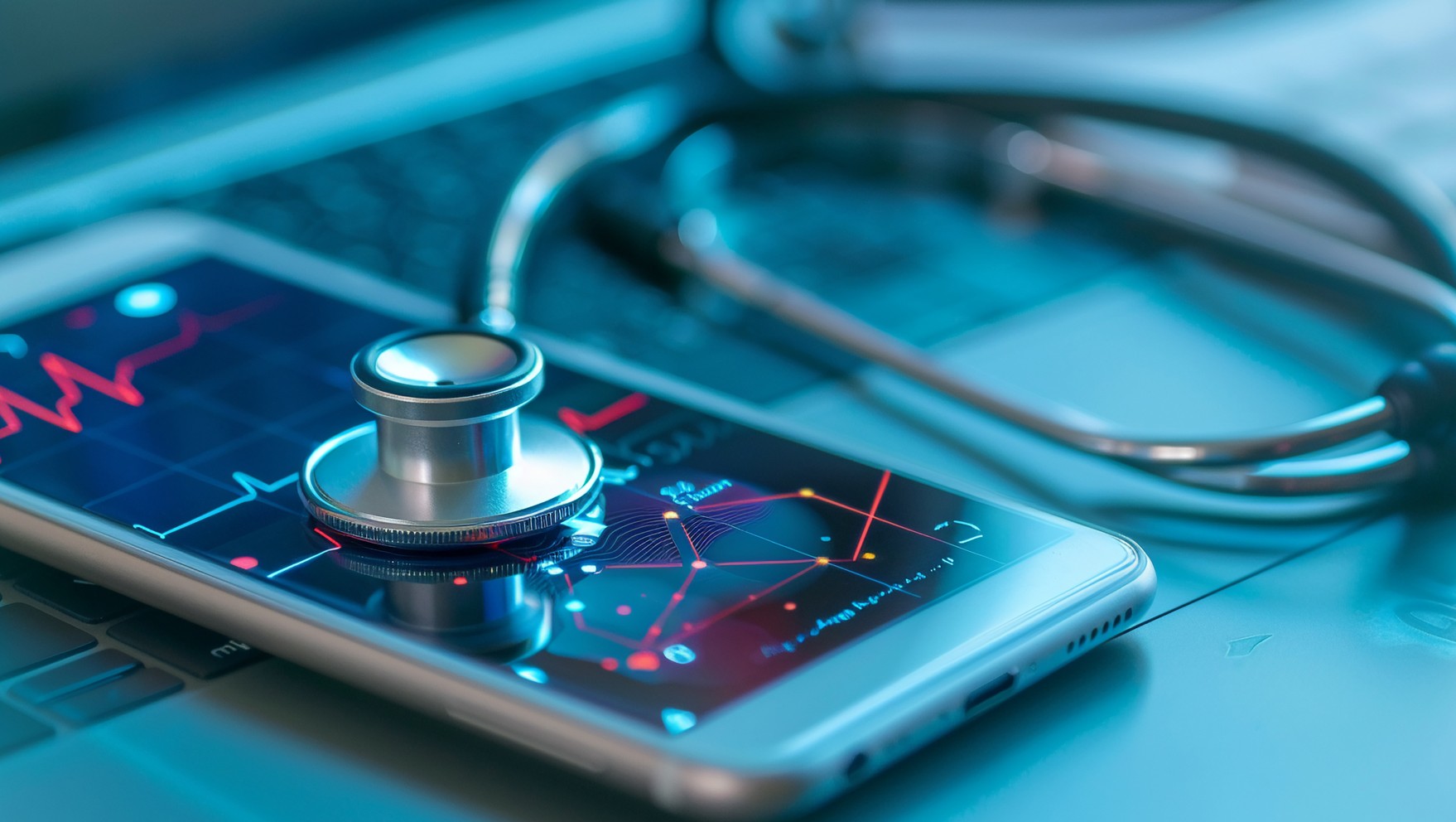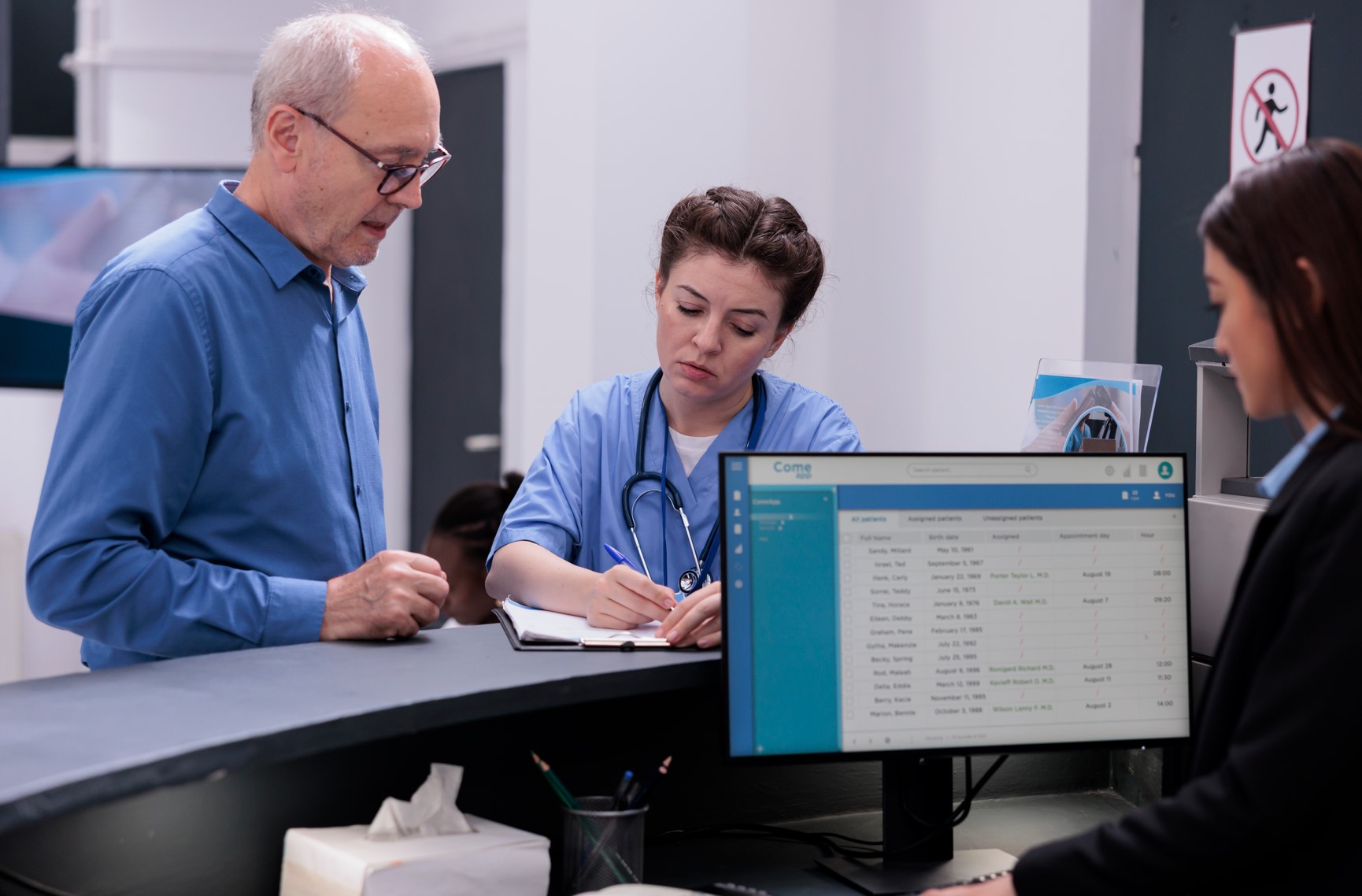- Why digitalization is important for hospitals, clinics, and medical offices
- Essential features of modern medical software
In the digital age, medical software has become indispensable for the efficient management of clinics, offices, and hospitals. Whether it’s a small private clinic or a large hospital, adopting modern medical software like omnimedica simplifies access to medical data and automates administrative processes, providing essential support for both medical staff and patients. Below, we’ll explore why digitalization in healthcare is important and the key features a modern medical software should include.
Why digitalization is important for hospitals, clinics, and medical offices
Digitalization is transforming how medical institutions are managed by eliminating physical documents, reducing human error, and improving operational efficiency. Additionally, it provides access to critical medical records and information anytime and anywhere, enhancing communication and collaboration between medical teams and improving patient experiences.
A modern medical software, such as omnimedica, provides an integrated, online-accessible solution that minimizes unnecessary interactions and physical barriers. This type of platform centralizes all medical and administrative information, enabling effective organization and a better experience for all users. Using medical software is essential to meet today’s challenges, optimize resources, and ensure the safety and protection of patient data.

Essential features of modern medical software
To support the activities of clinics, hospitals, and medical offices, a medical software should cover both administrative and clinical needs. Below are the most important features of medical software that are crucial in any modern platform.
Electronic medical record management
Electronic medical records (EMRs) are essential in modern medical software, providing quick and easy access to patient medical histories. This feature allows for the centralization and constant updating of medical information, reducing the risk of error and ensuring that all data is available to medical staff when needed. A complete electronic medical record includes detailed information about medical history, past diagnoses, medications, surgeries, and laboratory tests, enabling personalized and safe care.
Appointment scheduling and management
Another essential feature is appointment scheduling and management. Through this feature, patients can make online appointments, reducing wait times and alleviating the workload on front desk staff. Additionally, this feature optimizes doctors’ schedules, ensuring better use of available resources. omnimedica, for instance, offers an easy-to-use scheduling system that benefits both patients and staff, facilitating optimal time and resource organization.
Automated billing and financial management
Automated billing is a vital feature for any medical institution, simplifying financial processes. A modern medical software, like omnimedica, automates invoicing and payment management, creating a fast and transparent workflow. This feature is essential to reduce the time and effort needed for financial management, allowing staff to focus on essential activities. Additionally, this feature provides a clear record of payments and outstanding balances, ensuring better financial planning and management.
Data security and sensitive information protection
Data security is a priority in any modern medical software, as patients’ medical information must be protected. Security features in medical software should include data encryption, user authentication, and protection against cyberattacks. omnimedica offers advanced security measures, ensuring compliance with current regulations and protecting patient data confidentiality. This enables clinics and hospitals to avoid risks associated with data leaks and ensures a safe environment for managing medical data.
Integration and interoperability with other medical systems
In many medical institutions, it’s essential for the medical software to be able to integrate with other IT systems. Integration and interoperability enable the rapid and accurate transfer of data between different departments and institutions, facilitating better patient care coordination. omnimedica provides integration solutions that allow collaboration with laboratories, imaging centers, and other medical units, ensuring a continuous and accurate data flow. This aspect is crucial for modern medical software, as it allows coordinated and efficient care regardless of location.
Adopting medical software with essential features can transform how hospitals, clinics, and medical offices are managed. Platforms like omnimedica provide quick access to critical information, reduce errors, and improve communication among teams. By digitalizing operations, medical institutions can streamline processes and offer a better experience for patients.
Ready to take a step toward efficient medical management? Choose omnimedica and discover how essential medical software features can transform your services and create a safer, more organized, and accessible environment for patients and staff alike.




